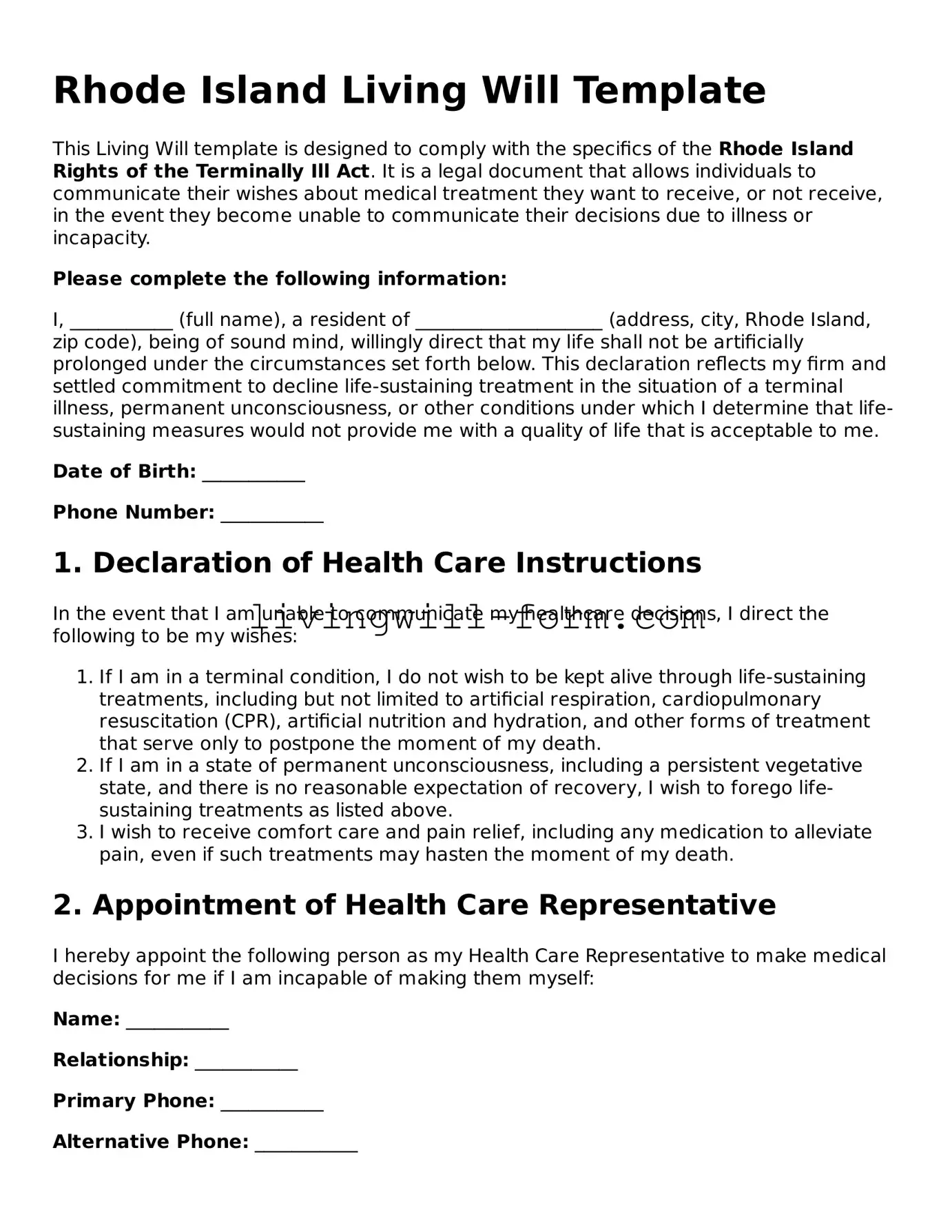Rhode Island Living Will Template
This Living Will template is designed to comply with the specifics of the Rhode Island Rights of the Terminally Ill Act. It is a legal document that allows individuals to communicate their wishes about medical treatment they want to receive, or not receive, in the event they become unable to communicate their decisions due to illness or incapacity.
Please complete the following information:
I, ___________ (full name), a resident of ____________________ (address, city, Rhode Island, zip code), being of sound mind, willingly direct that my life shall not be artificially prolonged under the circumstances set forth below. This declaration reflects my firm and settled commitment to decline life-sustaining treatment in the situation of a terminal illness, permanent unconsciousness, or other conditions under which I determine that life-sustaining measures would not provide me with a quality of life that is acceptable to me.
Date of Birth: ___________
Phone Number: ___________
1. Declaration of Health Care Instructions
In the event that I am unable to communicate my healthcare decisions, I direct the following to be my wishes:
- If I am in a terminal condition, I do not wish to be kept alive through life-sustaining treatments, including but not limited to artificial respiration, cardiopulmonary resuscitation (CPR), artificial nutrition and hydration, and other forms of treatment that serve only to postpone the moment of my death.
- If I am in a state of permanent unconsciousness, including a persistent vegetative state, and there is no reasonable expectation of recovery, I wish to forego life-sustaining treatments as listed above.
- I wish to receive comfort care and pain relief, including any medication to alleviate pain, even if such treatments may hasten the moment of my death.
2. Appointment of Health Care Representative
I hereby appoint the following person as my Health Care Representative to make medical decisions for me if I am incapable of making them myself:
Name: ___________
Relationship: ___________
Primary Phone: ___________
Alternative Phone: ___________
If my primary Health Care Representative is unable, unwilling, or unavailable to serve, I appoint the following person as an alternate Health Care Representative:
Name: ___________
Relationship: ___________
Primary Phone: ___________
Alternative Phone: ___________
3. Signature and Acknowledgment
This Living Will is made voluntarily and without any undue influence. I affirm that I am a resident of the State of Rhode Island and am of sound mind.
Signature: ___________
Date: ___________
This document must be signed in the presence of two (2) witnesses, who are not related to the declarant by blood, marriage, or adoption, and who are not entitled to any portion of the estate of the declarant under any will or by operation of law.
Witness #1 Signature: ___________
Date: ___________
Witness #2 Signature: ___________
Date: ___________
This template is provided as a courtesy and does not constitute legal advice. Individuals are encouraged to consult with a legal professional for personal advice and to ensure compliance with any other relevant state or federal laws.

